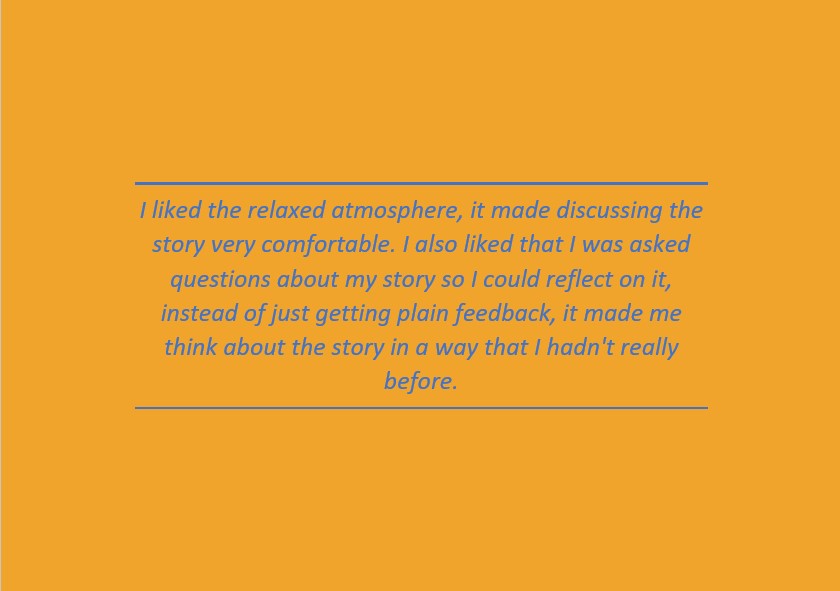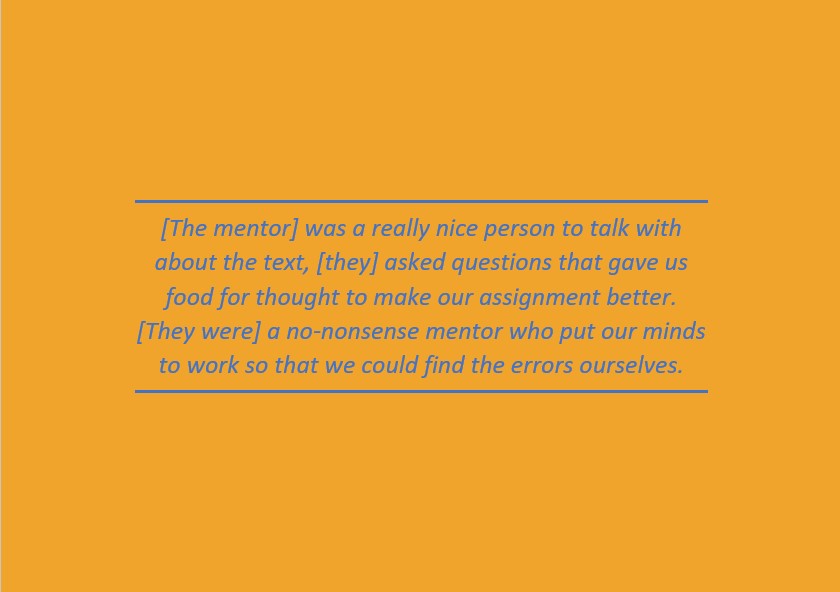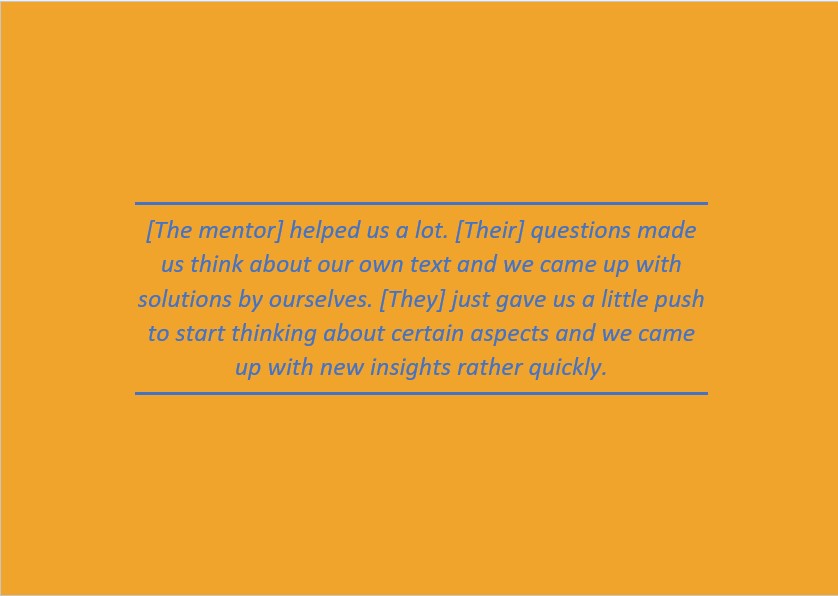This page contains some frequently asked questions and testimonials from students who made an appointment with a PAL. If you have any other questions, please feel free to contact us.
Testimonials
The following are a number of comments related to the writing mentors made by students from earlier years. The comments have not been edited or redacted, aside from corrections made to standardise spelling and grammar and the anonymisation of mentors and mentees.
If you’d like to add your own thoughts, please feel free to mail us .
Frequently Asked Questions
Q: What is peer assistance? Why does one need a ‘PAL’?
At Blandijn, students of English are expected to reach a high standard of English in every aspect of the language. Students are expected to both undertake and report on significant research projects, leading up to their third bachelor and master years. The skills and knowledge necessary to write a cohesive, focused paper, structure a speech or a presentation, command grammar and analyse and reference sources are all integral components of these projects.
However, in order to acquire the skills necessary to attain this level, it is not sufficient to simply keep practising without any external help. Research has shown the merits of engaging in “cognitive apprenticeship”, which means one “observes readers who responded to one’s own written text plus receiving additional written feedback”. This is what PALs do on a wider scale: engage with students by making them think critically about their own creative processes and provide additional feedback.
The UGent PALs offer students these extra opportunities for guidance and feedback outside of the classroom. Whether it’s writing, speaking, literature, grammar or heuristics, the PALs are here to assist you on your creative journeys.
Kellogg, Ronald T. & Bascom A. Raulerson III. 2007. Improving the Writing Skills of Students. Psychonomic bulletin & review 14(2). 237-242.
Kellogg, Ronald T. 2008. Training writing skills: A cognitive developmental perspective. Journal of Writing Research 1(1). 1-26.
Q: Who are the PALs?
PALs are English students who have, at least, successfully passed the first-year English Proficiency courses, and have demonstrated considerable peer assisting skills whilst doing so.
Potential PALs are selected not only on the basis of the quality of their own writing and speaking, but also because of both their ability to process and incorporate feedback into their writing and their own skills at providing their peers with guidance. Through their reflective writing, potential mentors have often demonstrated they are capable of thinking in abstract and analytical ways about their own work, and the creative process as a skill in general. Finally, they have shown they have the necessary empathic skills.
These students were invited to volunteer in the PAL-programme. They have received many hours of additional training in (non-directive) mentoring and analysis of (student) writing.
For a list of current PALs, please have a look at this page.
Q: What can I (not) expect from a PAL?
A PAL’s main job is to help you develop as a writer and/or speaker. They help you understand what parts of your project need improvement and the reasoning behind that, by providing you with additional support. By making you think about your own text, we try to improve not just your current project, but your skills in general. And, of course, a better text will probably help you earn higher marks.
Aside from that, PALs can be consulted for any number of issues you encounter during your creative process. If you’re not quite sure what to write about, or from which angle you’d like to approach a topic, we can talk about that. If you’re suffering from writer’s block, or are fundamentally unsure about a certain aspect of your text or presentation, we can help you. If you’re just not sure what to do, we can point you in the right direction. If you have a (finished) draft, we will happily read it and provide some comments. And, of course, if you just need reassurance about your project, we’ll gladly offer that as well.
Some PALs are also teaching assistants for the writing component of the English Proficiency course, so you can expect to encounter them there as well. PALs will also be present during some seminars/workshops to provide help.
A PAL is not a copywriter or an editor. Our job is not to check your text for grammar mistakes, or to tell you what’s “right”. We will not comment on your analysis of a certain work of literature, for example. We will, however, gladly help you with the writing aspect of that analysis.
Q: Why should I go see a PAL?
Basically, any reason is a good reason to go see a PAL. As explained above, PALs can help with many aspects of the writing process, whether you’re still in the planning stages of your text, have a complete draft, or are somewhere in between.
Note that peer assistance as a concept is not limited to students. Whilst our programme caters mainly to students, many editors, professional writers, and researchers consult peer assistants regularly or visit so-called “writer’s centres” (which are especially prevalent in the U.S.) to get help. There’s a very good chance your favourite author has or had one or more peer assistants who help them write and provide feedback on their (un)finished work.
Q: What do I need to do to see a PAL?
Scheduling an appointment is easy: you just need to send us your draft and pick a time slot. Please refer to this page for details.
[/expand]










